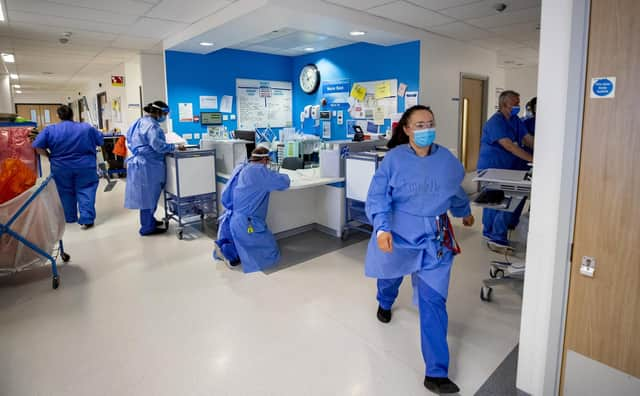Dani Garavelli: A two-tier NHS can never be the answer


It can be distressing to watch their anxiety mount as their frailty grows. But,
always, doctors and nurses are there to reassure them. “This is the NHS,” they say. “You don’t
Advertisement
Hide AdAdvertisement
Hide Adhave to pay.” Although, obviously, they have already paid. Via their taxes. All their working lives.
Though I am no psychologist, I suspect this anxiety is rooted in the past. Few of those receiving
treatment right now will remember life before the NHS; but they may recall their parents talking
about a time when healthcare was patchy, and illness took a heavy financial as well as physical
toll.
Former health secretary Sajid Javid has a hankering for those bad old days. Last week, he said
the “unsustainability” of the NHS should be tackled by charging patients for GP appointments
and A&E visits - a suggestion that undermines the founding principles of the NHS and gives the
lie to those who have dismissed warnings of privatisation by stealth as “scaremongering.”
Advertisement
Hide AdAdvertisement
Hide AdJavid affects to believe NHS problems are being caused by the frivolous accessing of services
by people who take them for granted. Prime Minister Rishi Sunak says he is not “currently”
considering his suggestion. But a shared belief in patient profligacy was at the heart of his own
proposed introduction of a £10 fine for missed appointments - a policy dropped when it was
pointed out most repeat offenders are not affluent timewasters, but people already on the
margins.
That the NHS is gubbed is obvious to anyone who has been paying attention. Barely a day
passes without another horror story about backlogs in vital operations and months-long waits for
urgent tests, while elderly people languish in wards for lack of anywhere else for them to go.
Advertisement
Hide AdAdvertisement
Hide AdIt is true most GP practices have their “frequent attenders”, and some people do make
unnecessary visits to A&E. But these factors are negligible compared to the principal drivers of
the NHS crisis: demographics, the pandemic, the failure to recruit and retain staff, and, perhaps,
most importantly, the failure to address the crisis in social care.
Comments
Want to join the conversation? Please or to comment on this article.